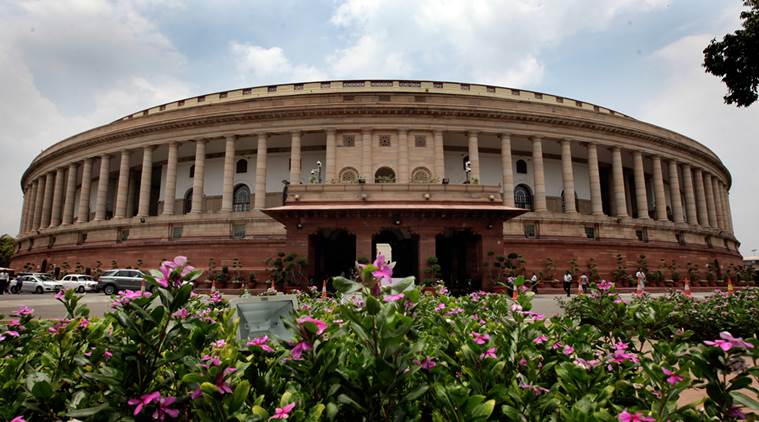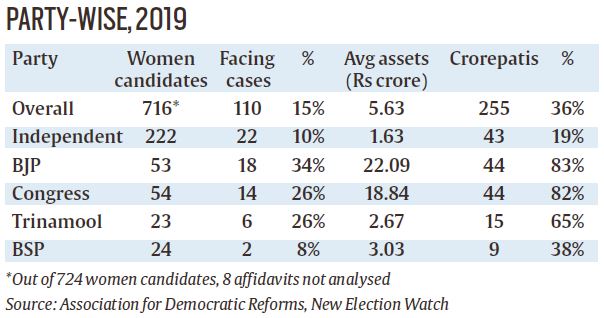
Of the women candidates who contested the just concluded Lok Sabha elections, more than one in seven have criminal cases pending against them, according to an analysis of their affidavits by the Association for Democratic Reforms (ADR) and New Election Watch. A statement released by the two organisations said that out of 724 women candidates, 716 were covered in the analysis and 110 (15%) have declared criminal cases. The affidavits of the other eight candidates are unclear, the statement said.
Of the 15% who have declared criminal cases, 11% (78 of 716) have declared serious cases — rape, murder, attempt to murder, crimes against women etc. In 2014, 13% (87 of 665 women candidates had been covered in that analysis) had declared criminal cases, with 8% (51) having declared serious cases.
Of the 78 facing cases in 2019, four have declared cases of murder (IPC Section 302), 16 have declared cases of attempt to murder (Section 307), and 14 have declared cases relating to crimes against women (Section 313).

Of the 110 women facing cases, 22 are independent candidates, representing 10 per cent of all women independents contesting in 2019. Among parties, the BJPand the Congress, respectively, have 34% (18 of 53) and 26% (14 of 54) women candidates facing criminal cases.
Of the 716 women candidates analysed, 255 (36%) are crorepatis. Of the 665 women candidates analysed in 2014, 219 (33%) were crorepatis.
The average assets per woman candidate contesting in 2019 are Rs 5.63 crore. The average per woman candidate in 2014 was Rs 10.62 crore.
***
Tip for Reading List | Most Formidable Spy in History
The Soviet military intelligence officer Richard Sorge (1895–1944) is widely acknowledged as one of the most accomplished spies ever. Before and during World War II, he worked as a journalist in Nazi Germany — his father was German and his mother Russian — as well as Japan. He is also credited with having been a seducer who used his charm to find out closely guarded state secrets — James Bond creator Ian Fleming described him as “the most formidable spy in history”. Sorge’s intelligence inputs proved vital to the Soviets in the Battle of Moscow, which in turn determined the outcome of the war. Sorge, however, was arrested for espionage in Japan and hanged in November 1944.
British journalist and historian Owen Matthews now retells Sorge’s story from the perspective of the Russians as well as the Germans and the Japanese. An Impeccable Spy: Richard Sorge, Stalin’s Master Agent draws from declassified Soviet archives — along with testimonies from those who had known and worked with Sorge, a dedicated communist apart from being a spy.
Among the few previous English language books on Sorge, one is Stalin’s Spy by Robert Whymant, a former journalist with The Guardian. Whytman, whose book was published in 1996, had interviewed people who knew Sorge well, an advantage Matthews did not enjoy with all those witnesses having passed away. Reviewing the new book, The Guardian praises Matthews: “He tells the dramatic story well, not least the final twist. In the Brezhnev and Andropov eras in the 1970s and 80s, Sorge became a Soviet hero with a flood of books about him, even though he had been totally abandoned in 1944 when he was arrested in Tokyo. He had hoped the Soviet authorities would press the Japanese to let him go back to Moscow, but the Kremlin betrayed the man who had done so much for it. No effort was made to save him.”

